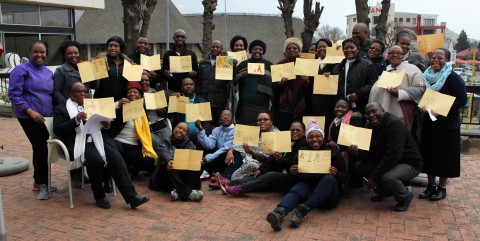
GCED Basic Search Form
Quick Search
You are here
News

Co-organized by Asia-Pacific Centre of Education for International Understanding (APCEIU) and Lesotho Distance Teaching Centre (LDTC), Workshop in Lesotho on GCED took place between 12 and 14 of July 2017 at Maseru, the capital city of Lesotho.
As a post-Fellowship Programme, Fellowship Good Practices & On-site Training (Fellows in Action 2017) was launched this year to identify exemplary initiatives led by alumni of the UNESCO/KOICA Joint Fellowship Programme. The Programme is designed to provide support to the alumni of the Fellowship Programmes to share their good educational practices in local contexts, applying the knowledge and skills gained from APCEIU’s two-month training in Korea. The case of Ms. Nomsa Mpalami (2015 Fellowship Participant from Lesotho), ‘teacher training on peace education for non-formal educators in Lesotho’, has been selected as one of the three good practices, and the Workshop was implemented to further encourage her efforts to enhance the capacity of teachers in non-formal sector on GCED (Global Citizenship Education) and peace education.

The Workshop invited 30 non-formal educators from different regions of Lesotho to learn about GCED with a focus of peace education and PVE (Preventing Violent Extremism) with sessions and lectures on conceptual framework of peace education led by Dr. Yonas Adeto (Institute of Peace and Security Studies, Addis Ababa University), discussion and dialogue on ways of dealing with conflicts and methods of conflict transformation in their own contexts facilitated by Ms. M. Mohasi (Transformation Resource Centre, Lesotho), and workshops on creating learning materials on peace and conflict transformation reflecting the lessons learned, which will be used as teaching and learning resources for their learners.

The learning materials created by the participants will further be polished and edited to be published as booklets on peace education by the publication department of LDTC, which will be disseminated throughout the country, including schools, community centers, libraries and other institutions where teachers can utilize them as teaching and learning materials.
